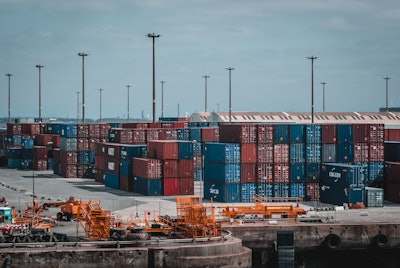
Following the completion of the U.S. Department of Agriculture's Southeast In-Transit Cold Treatment Pilot program, importers of perishables from South American countries can now move their cargo across the Port of Virginia.
“We’re the U.S. East Coast’s leading vegetable exporter, and this designation positions us to achieve the same success with imported fruit,” says John F. Reinhart, CEO and executive director of the Virginia Port Authority. “This is important for logistics and supply chain managers importing agricultural products because it means this cargo will get to its market more quickly.”
The approval coincides with the port's effort to expand its capacity to handle refrigerated cargo, investing a $700 million to expand capacity at its two primary container terminals.
“We’re expanding the stack-yard at VIG and reconfiguring the yard at NIT, and both of these projects include new reefer racks for each stack,” Reinhart says. “When construction is finished, we’ll have nearly 900 reefer spaces at each terminal, which is a 66 percent increase in total reefer capacity. We have the necessary federal approval and capacity to help develop Virginia into an export and import center for refrigerated cargo.”
The port began participating the USDA's pilot program that allowed imports of certain refrigerated fresh fruits from South America in Oct. 2017. Under the program, the state could import cold-treated containers of blueberries, citrus and grapes from Peru; blueberries and grapes from Uruguay; and apples, blueberries and pears from Argentina.
Previously, time-sensitive shipments would come to the East Coast and move across ports in the Northeast. With the change, shippers will see lower transportation costs and a longer shelf life for their products, consumers will see lower prices at stores and there will be environmental benefits from reduced emissions-related transportation.
The program enables containerized imports to enter the port directly after completing a two-week cold treatment process as a safeguard against fruit flies and other pests, as well as acquiring all the required unloading clearances prior to the shipment’s arrival in port. Cold treatment is a process by which perishable fruit imports have their pulp brought to a certain temperature for a period of time in order to fulfill USDA quarantine requirements.



















